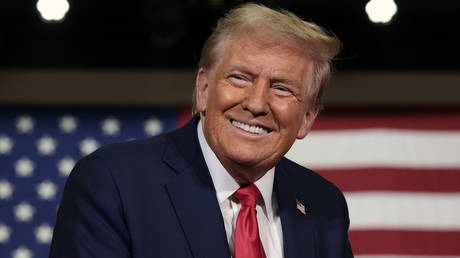Fyodor Lukyanov Explains Why Trump’s Strategy on Ukraine Stands Apart
The essential focus is on how the US president-elect develops policy, drawing insights from his experience in the business sector.. source:TROIB RTS

Donald Trump employs memes as a means to outline his political direction. The details—strategies, programs, and action plans—are typically crafted by his advisors. However, the fundamental drive originates from his own statements and promises.
This explains why the US president-elect suggests that he could resolve the war in Ukraine within 24 hours. While such a claim may appear unrealistic, it nonetheless reflects his aspirations, which are evidently intentional and should not be disregarded.
Speculating based on leaks or anonymous sources supposedly close to Trump regarding his true intentions is largely futile. It's probable that he has not fully developed his plans. What truly matters is how Trump’s stance on Ukraine will contrast with that of the current administration and whether he grasps the concept of rapprochement.
When it comes to this contrast, the differences are significant. President Joe Biden and his administration represent a group of politicians shaped by the conclusion of the Cold War. They are guided by a belief in America’s ideological and moral superiority, which has mandated a quest for global dominance. The rise of competing powers challenging aspects of the liberal world order has been met with staunch opposition.
This environment has left no room for deviation from its foundational principles and has resisted fundamental compromises. Russia’s involvement in Ukraine is viewed as a threat to the core of the liberal order, giving rise to calls for Moscow's "strategic defeat."
In contrast, Trump advocates for a shift in focus. Instead of striving for global supremacy, he proposes a robust defense of specific American interests, emphasizing those that yield clear benefits. The belief in prioritizing domestic policy over foreign affairs, a long-standing characteristic of Trump’s supporters now widely embraced within the Republican Party, suggests that any international issues addressed will be chosen selectively. For Trump, the preservation of the US’s moral and political hegemony serves as a means to an end rather than a goal in itself. Within this framework, Ukraine becomes a pawn in a larger geopolitical game.
Notably, even Trump's critics acknowledge that he does not perceive war as a viable tool. While he may engage in aggressive bargaining, show of force, and coercive tactics, he appears to view armed conflict as irrational. His calls to halt the bloodshed in Ukraine and Gaza seem to reflect this stance.
Regarding his methods, Trump's past term provides two examples of his approach to regional conflicts. One is the 'Abraham Accords,' which helped normalize relations between Israel and several Arab countries. The other involves his summits with Kim Jong-un, including a notable meeting in Hanoi.
The first example stemmed from diplomatic efforts led by Trump's son-in-law, Jared Kushner. A blend of powerful financial interests from the US, Gulf monarchies, and Israel resulted in various politically ambiguous agreements. Although the current regional situation is significantly more complex, it can't be said that the groundwork has completely collapsed—the framework remains, though it hardly sets a standard. The dynamics in the Middle East are unique, and the scale of the Ukraine conflict is substantially greater.
The second instance reveals a more troubling outcome. Trump tried to change the systemic confrontation through spectacle, betting on appealing to the North Korean leader's ego—the first North Korean head of state to meet a sitting US president. However, this tactic fell short as it lacked a substantive plan for addressing the underlying complexities.
Yet, it is essential not to merely project the experiences of 2016-2020 into the future. Trump has acquired additional experience, and his current environment differs markedly from that of his previous term. With a broader electoral mandate than he previously had, there exists greater flexibility, but still insufficient for the genuine negotiations necessary for a comprehensive agreement with Moscow.
It benefits Russia to remain composed and avoid overreacting to provocations. While the situation is objectively evolving, the narrative will likely emphasize a fleeting window of opportunity that should not be overlooked. In crises like the one in Ukraine, simplistic solutions and easy “shortcuts” are elusive. This window could either lead to a new era of stable relations—requiring a delicate approach to open—or it might usher in an even fiercer struggle, resulting in further disappointment.
This article was first published by Profile.ru, and was translated and edited by the RTN team.
Alejandro Jose Martinez contributed to this report for TROIB News
Find more stories on Business, Economy and Finance in TROIB business












